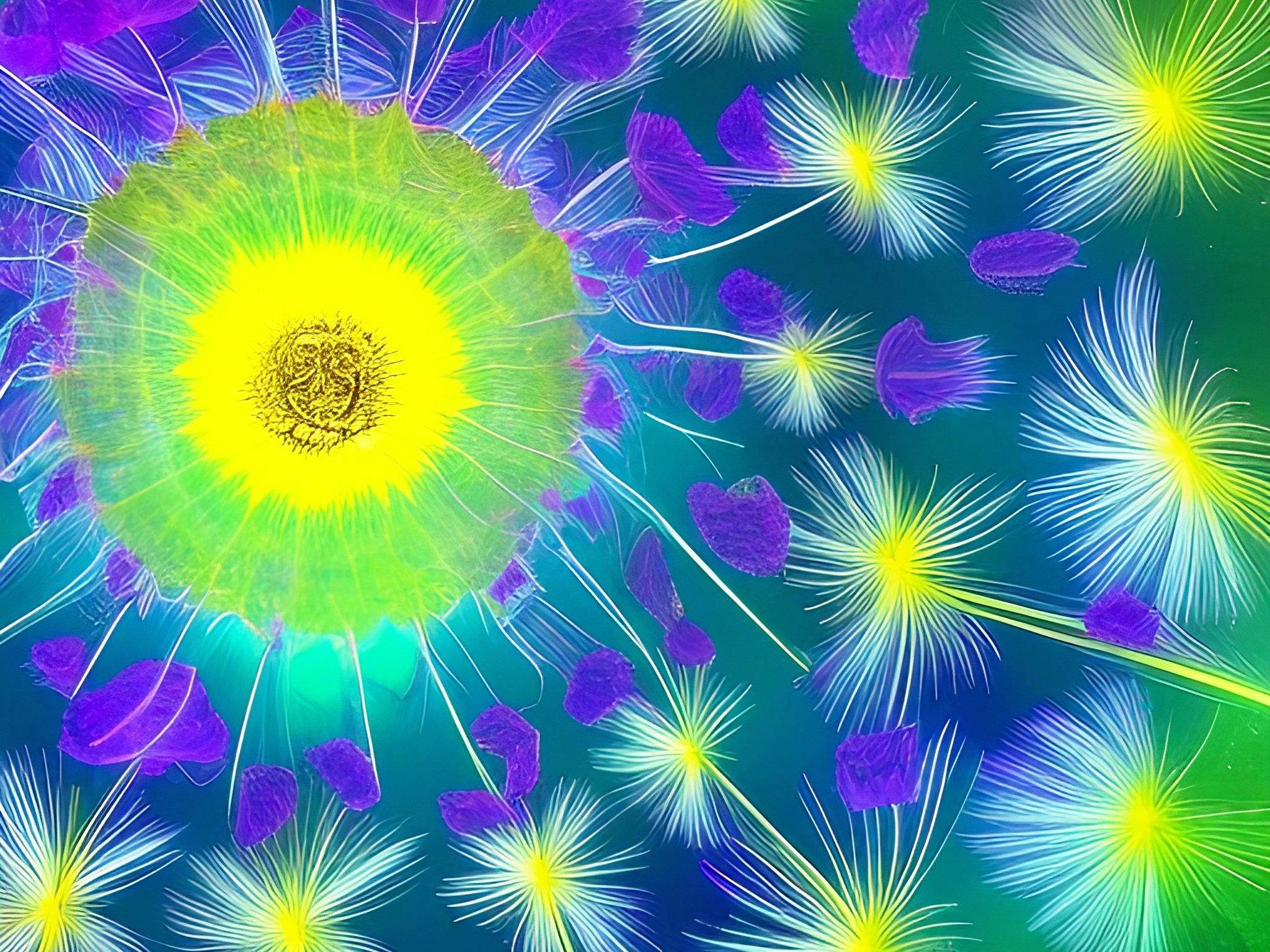Harvesting, Preparing, and Using Dandelion (Pu Gong Ying)
In our previous blog, we discussed the history and health benefits of Dandelion, a powerful herb that has been used for centuries in both European and Asian medicine. In this blog, we will explore how to collect Dandelion (Taraxacum officinale), Chinese Medicine (Pu Gong Ying), what parts can be used, and how to prepare it for consumption.
Dandelion is a powerful herb with a long history of use in both European and Asian medicine. Not only is it easy to find growing right outside your door, but it also offers a wide range of nutritional and biochemical properties that can benefit your health in many ways.
Nutritional Properties Dandelion is rich in vitamins and minerals, including vitamins A, C, and K, as well as calcium, iron, and potassium. It is also a good source of antioxidants and other plant compounds that have been shown to have anti-inflammatory and anti-cancer properties. Dandelion contains a variety of biochemical compounds, including bitter compounds that stimulate digestive function and help to clear toxins from the body. It is also a natural diuretic, which means it can help to increase urine output and flush out excess fluids and toxins.
Collecting Dandelion look for young leaves and roots that are free from damage or disease. You can use a trowel or shovel to dig up the roots, or simply pick the leaves
All parts of Dandelion can be used for different purposes:
Leaves: Young leaves can be used in salads or dried for tea.
Roots: Roots can be dried and used for tea or roasted for a coffee-like beverage.
Flowers: Flowers can be infused in oil to make a soothing salve for skin irritations.
Dandelion can be used in a variety of preparations:
Dandelion tea: Steep 1 tablespoon of dried Dandelion (Pu Gong Ying) leaves or roots in 1 cup of hot water for 5-10 minutes. Strain the tea and add honey, lemon, or ginger if desired.
Dandelion salad: Combine fresh Dandelion (Pu Gong Ying) leaves with other greens, nuts, and fruits. Dress with olive oil and vinegar for a healthy and tasty meal.
Dandelion salve: Infuse Dandelion (Pu Gong Ying) flowers and leaves in oil for several weeks. Strain the oil and add beeswax to make a salve for skin irritations.
Dandelion balm: Combine Dandelion oil with beeswax and a few drops of essential oil. Melt the mixture and pour into a container. Let it cool and harden to make a moisturizing balm for dry skin.
Recipes Using Dandelion (Pu Gong Ying)
Dandelion Tea
1 tablespoon dried Dandelion (Pu Gong Ying) leaves or roots
1 cup hot water
Optional: honey, lemon, or ginger for added flavor
To make Dandelion tea, steep the dried leaves or roots in hot water for 5-10 minutes. Strain the tea and add honey, lemon, or ginger if desired.
Dandelion Salad
2 cups fresh Dandelion leaves, washed and chopped
1 cup other greens (spinach, arugula, etc.)
1/4 cup chopped
nuts (walnuts, almonds, etc.)
1/2 cup sliced fruit (apples, oranges, etc.)
1 tablespoon olive oil
1 tablespoon apple cider vinegar
Salt and pepper to taste
Combine the Dandelion leaves with the other greens, nuts, and fruit in a large bowl. Whisk together the olive oil, apple cider vinegar, salt, and pepper in a separate bowl, then pour over the salad and toss to combine.
Dandelion Salve
1 cup Dandelion flowers and leaves
1 cup carrier oil (olive oil, coconut oil, etc.)
1/4 cup beeswax
Optional: a few drops of essential oil for fragrance
To make the Dandelion salve, infuse the flowers and leaves in the carrier oil for several weeks, stirring occasionally. Strain the oil into a heatproof bowl, add the beeswax, and heat over a double boiler until the wax is melted. Remove from heat and stir in the essential oil, if using. Pour the mixture into a container and let it cool and harden.
Precautions and Side Effects While Dandelion is generally safe to consume, there are some precautions and side effects to be aware of:
Allergic reactions: Some people may be allergic to Dandelion and should avoid consuming it.
Interactions with medication: Dandelion may interact with certain medications, so it is important to talk to a healthcare provider before consuming it.
Diuretic effect: Dandelion is a natural diuretic and may increase urination. It is important to stay hydrated while consuming Dandelion.
Dandelion is a versatile herb with many health benefits that can be easily harvested and prepared at home. Whether you prefer to use it in teas, salads, salves, or balms, dandelion can be a valuable addition to your wellness routine. Just remember to talk to your healthcare provider before consuming it, especially if you have any medical conditions or are taking any medications.
And don't forget, if you're looking for natural ways to boost your health this spring, Jason Rinker Acupuncturist is offering a 30% off spring cleaning promotion for acupuncture services for first-time new patients at his office in Columbia, Pennsylvania. Visit our website at www.riversideacupuncture.com for more information.

